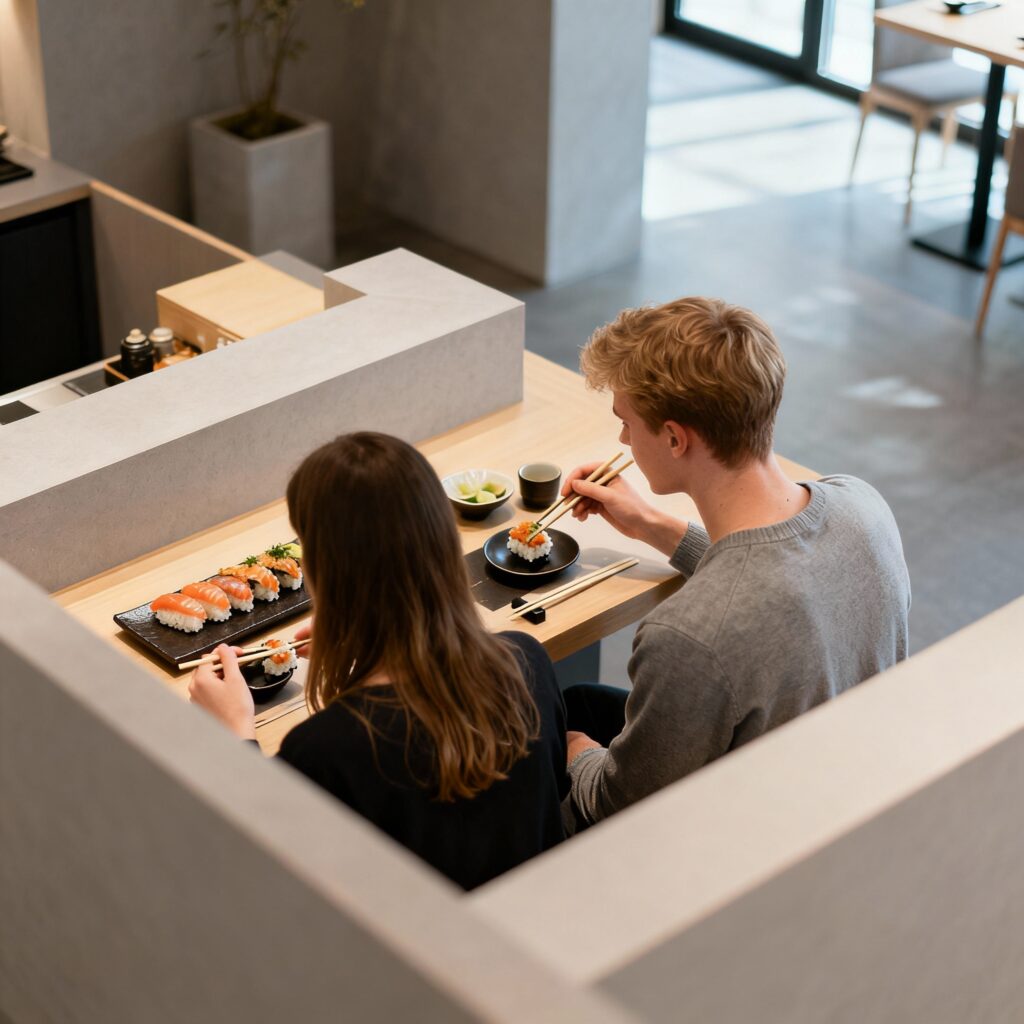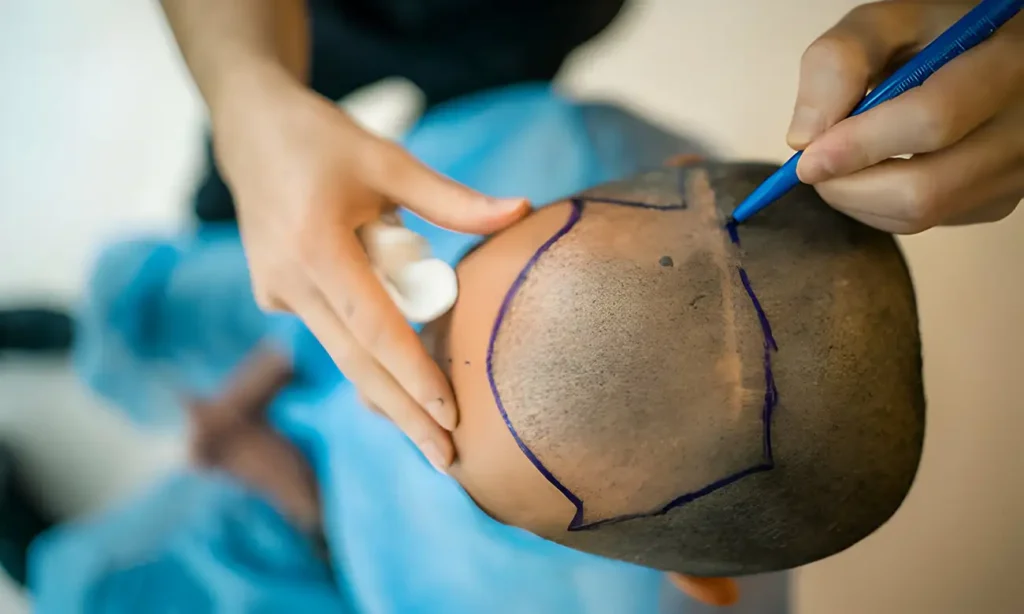Type and hit Enter to search
Experts in aesthetic surgery, dermatology, and beauty bring you the latest trends, research, and advice to help you make informed decisions about your appearance and health.
A web platform dedicated to aesthetic surgery, dermatology, and beauty, where expertise meets innovation, and your desires and needs become our mission. In a world where appearance and health go hand in hand, our platform leads the revolution, delivering the latest trends, research, and expert advice directly to you.
Our team consists of highly skilled professionals in the fields of aesthetic surgery and dermatology, committed to providing reliable information and guidance that will help you make informed choices about your appearance and well-being. We understand that every individual has unique needs and desires, which is why we approach each person with the utmost care and professionalism.
Powered by Aestetica Web Design © 2024
From Filtered Faces to Scalpel Selfies: The Insta-Makeover Mania
Ever wondered why everyone on Instagram is starting to resemble a Kardashian-clone with a Facetune filter? Welcome to the wild world of social media-driven plastic surgery, where likes and follows are the new currency of beauty.
The Rise of the “Instagram Face” and the New Beauty Standards
Let’s face it (pun intended), we’ve all scrolled through Instagram and thought, “Wow, everyone’s starting to look the same.” It’s like we’ve entered a parallel universe where high cheekbones, full lips, and perfectly sculpted noses are the norm. Welcome to the era of the “Instagram Face.” As Kim Kardashian West, arguably the queen of the Instagram aesthetic, once put it, “If you’re not contouring, you’re not living.”
Defining the “Instagram Face” Phenomenon: The Clone-like Craze
So, what exactly is the “Instagram Face”? It’s that elusive blend of features that seems to dominate our feeds, a carefully curated look that’s both aspirational and, let’s be honest, a little bit eerie. Think of it as the lovechild of a Kardashian, a Hadid, and a generous helping of FaceTune.
Dr. Lara Devgan, a renowned plastic surgeon in New York City, has seen a surge in requests for these specific features. She says, “Patients come in with photos of celebrities and influencers, asking for their noses, their lips, their cheekbones. It’s like they’re trying to recreate a specific template.” It’s almost like we’re witnessing the birth of a new beauty standard, one that’s less about individual uniqueness and more about conforming to a digital ideal.
The Role of Filters and Facetune in Shaping Desires: Faking It Till You…Actually Make It
Of course, filters and editing apps like Facetune play a major role in fueling this phenomenon. They allow us to blur imperfections, smooth out skin, and reshape our features with just a few taps on our phone screens. But while these tools can be fun for a quick selfie boost, they also have a darker side.
“Filters create an unrealistic standard of beauty that’s impossible to achieve in real life,” says Dr. Jessica P. Weiser, a board-certified dermatologist. “When we constantly compare ourselves to these altered images, it can lead to dissatisfaction with our own appearance and even trigger body dysmorphia.” It’s like we’re living in a world of smoke and mirrors, where the line between reality and fantasy becomes increasingly blurred.
The Most Influential Beauty Influencers and Their Impact: Trendsetters or Troublemakers?
Behind every trend, there’s usually a trendsetter. In the case of the “Instagram Face,” beauty influencers wield immense power in shaping our desires. Kylie Jenner, with her ever-evolving lips and perfectly arched brows, is often credited as the pioneer of this aesthetic. Huda Kattan, the makeup mogul, has also openly discussed her own cosmetic procedures, further fueling the trend.
While some influencers are transparent about their enhancements, others perpetuate the illusion of natural beauty, leaving their followers to wonder if they woke up like this or if they had a little help from their surgeon friends. As beauty influencer James Charles once famously declared, “I’m not perfect, but my makeup is.”
The “Surgical Tourism” Trend and Its Risks: When a Bargain Boob Job Becomes a Nightmare
The rise of the “Instagram Face” has also led to a surge in “surgical tourism,” the practice of traveling abroad for cheaper cosmetic procedures. While the allure of a bargain boob job or a cut-rate facelift can be tempting, it’s important to remember that not all surgeons are created equal.
“Choosing a qualified and experienced surgeon is crucial, regardless of where you’re having the procedure done,” warns Dr. Rod J. Rohrich, a plastic surgeon and author. “Cutting corners on safety can have devastating consequences.” So, before you book that flight to a foreign country for a nip and tuck, do your research and make sure you’re not putting your health at risk for the sake of a few likes on Instagram. Remember, a botched surgery is not a good look, no filter can fix that.
The Business of Beauty: How Influencers Monetize Plastic Surgery (Because, Hey, Those Lip Fillers Don’t Pay for Themselves)
If you thought the “Instagram Face” was just a trend, think again. It’s a full-fledged industry, and influencers are raking in the dough by promoting everything from Botox to Brazilian Butt Lifts. As Jeffree Star, the outspoken makeup mogul and self-proclaimed surgery enthusiast, once quipped, “I’m not afraid of plastic surgery. I’m more afraid of looking like everyone else.” But is this beauty business all glitz and glam, or are there some shady secrets lurking beneath the surface?
Sponsored Content and Brand Partnerships: #Ad or #HonestOpinion?
Have you ever wondered how your favorite influencer affords all those luxurious vacations and designer clothes? Chances are, it’s not just from posting pretty selfies. Many influencers have lucrative brand partnerships with cosmetic clinics, surgeons, and even specific procedures.
Take, for instance, the time a certain reality TV star (cough, Kim Kardashian, cough) posted about a “vampire facial,” a procedure involving injecting one’s own blood into their face for a youthful glow. Suddenly, everyone wanted to try it. But was it really a miracle cure, or just a clever marketing ploy? As consumers, it’s important to question the motives behind these endorsements and remember that influencers are often paid to promote these products and services.
Affiliate Marketing and Discount Codes: Savings or Scam?
Ever clicked on an influencer’s link and received a discount on a cosmetic procedure? That’s affiliate marketing in action. Influencers get a commission for every referral or sale they generate, which can be a nice little bonus on top of their already hefty paychecks.
But is it always a win-win situation? Not necessarily. Some influencers have been accused of promoting products or services they haven’t personally tried or don’t believe in, simply for the financial gain. As the saying goes, “Money talks,” and sometimes it can drown out the truth. So, before you whip out your credit card to buy that miracle wrinkle cream or book that discounted tummy tuck, do your research and make sure you’re not falling for a scam.
The Rise of Influencer-Owned Beauty Brands and Clinics: Building Empires One Lip Kit at a Time
Why just promote other people’s products when you can create your own? That’s the thinking behind the growing trend of influencers launching their own beauty brands and clinics. From Kylie Jenner’s Kylie Cosmetics empire to Huda Kattan’s Huda Beauty line, these savvy entrepreneurs are capitalizing on their massive followings to create products and services tailored to their fans’ desires.
But is this a case of influencers genuinely wanting to share their beauty secrets with the world, or is it just another money-making scheme? As always, it’s important to be a critical consumer and not blindly follow the hype. Remember, just because your favorite influencer swears by a product doesn’t mean it’s the right fit for you.
The Ethical Concerns Surrounding Influencer Marketing in Plastic Surgery: When “Likes” Turn Into Liability
While influencer marketing can be a lucrative business for both influencers and brands, it also raises some serious ethical concerns. Are influencers responsible for the decisions their followers make based on their recommendations? What happens when a procedure goes wrong, or a product turns out to be harmful?
These are questions that need to be addressed as the industry continues to grow. As Dr. Arthur W. Perry, a board-certified plastic surgeon, puts it, “Influencers have a responsibility to their followers to be honest and transparent about their experiences with plastic surgery. They should not be promoting procedures or products they haven’t personally tried or don’t believe in.” It’s time for the beauty industry to clean up its act and put the well-being of consumers first. After all, beauty should never come at the cost of safety or ethics.
Beyond the “Instagram Face”: The Diversification of Plastic Surgery Trends (Because Who Wants to Look Like a Carbon Copy, Anyway?)
So, you thought the “Instagram Face” was the be-all and end-all of plastic surgery trends? Think again, darling. The beauty world is evolving, and people are starting to realize that there’s more to looking good than having a cookie-cutter face. As the ever-fabulous RuPaul once said, “If you can’t love yourself, how in the hell you gonna love somebody else?” And that includes loving the unique features that make you, well, you!
The Rise of “Tweakments” and Non-Surgical Procedures: A Little Pinch Here, A Little Plump There
Let’s be real, not everyone wants to go under the knife. That’s where “tweakments” come in – those subtle, non-surgical procedures that can give you a little refresh without the downtime and drama of a full-blown surgery. Think injectables like Botox and fillers, which can smooth out wrinkles, plump up lips, and sculpt cheekbones with just a few strategically placed injections.
Dr. Shereene Idriss, a board-certified dermatologist and skincare expert, is a big proponent of these less invasive options. She says, “Tweakments offer a way to enhance your natural beauty without drastically changing your appearance. It’s about looking like a refreshed version of yourself, not a completely different person.” So, if you’re looking for a way to subtly turn back the clock or enhance your features, tweakments might be just the ticket. But remember, moderation is key. As the saying goes, “too much of a good thing can be wonderful,” but in this case, it can also lead to the dreaded “pillow face” look – and nobody wants that.
Body Contouring and the Pursuit of the “Ideal” Physique: When a Thirst Trap Turns into a Surgery Trap
While the “Instagram Face” has dominated conversations about facial aesthetics, body contouring procedures have quietly been on the rise. Thanks to fitness influencers flaunting their sculpted abs and curvy behinds, more and more people are seeking out procedures like liposuction, fat transfer, and tummy tucks to achieve their “ideal” physique.
But what exactly is the “ideal” physique? It’s a constantly shifting target, influenced by everything from social media trends to cultural norms. As fitness influencer Kayla Itsines wisely notes, “Your body hears everything your mind says. Stay positive.” It’s important to remember that there’s no one-size-fits-all when it comes to beauty. What looks good on one person might not look good on another. So, before you go under the knife (or laser, or whatever), make sure you’re doing it for yourself and not just to conform to someone else’s idea of perfection.
Ethnic Plastic Surgery and the Celebration of Diversity: Embracing Your Heritage, One Nose Job at a Time
The world is a melting pot of cultures, and plastic surgery is no exception. Ethnic plastic surgery, which focuses on procedures tailored to specific ethnicities and cultural preferences, is becoming increasingly popular. For example, Asian patients may seek out eyelid surgery to create a crease, while Black patients may opt for rhinoplasty to refine their noses while maintaining their ethnic identity.
Dr. Samuel Lin, a plastic surgeon specializing in Asian plastic surgery, explains, “It’s about understanding the unique anatomy and aesthetic preferences of different ethnicities. The goal is to enhance natural beauty, not erase cultural identity.” It’s a beautiful thing to see people embracing their heritage and celebrating their unique features. After all, diversity is the spice of life, and that includes the world of plastic surgery.
The Role of Social Media in Normalizing Plastic Surgery: When a Facelift Is Just Another #TransformationTuesday
Remember when plastic surgery was a taboo topic, whispered about in hushed tones? Thanks to social media, those days are long gone. Influencers are now openly sharing their experiences with cosmetic procedures, from the initial consultation to the final reveal. This newfound transparency has helped to normalize plastic surgery and reduce the stigma associated with it.
But is this a good thing? Some experts argue that the overexposure to plastic surgery on social media can lead to unrealistic expectations and impulsive decisions. It’s important to remember that everyone’s experience is different, and what works for one person might not work for another. As body-positive influencer Megan Jayne Crabbe reminds us, “You don’t have to be perfect to be beautiful.”





